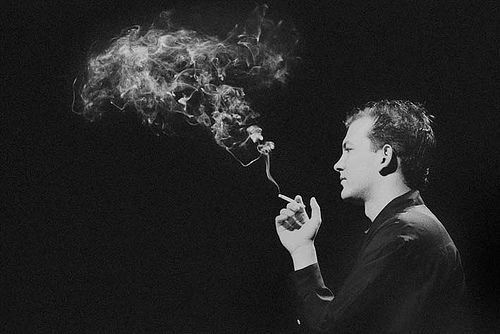Mehldau premiere, like Orpheus program, catches belated fire

Brad Mehldau gave the U.S. premiere of his “Variations on a Melancholy Theme” with the Orpheus Chamber Orchestra Wednesday night at Carnegie Hall.
The Orpheus Chamber Orchestra opened their season with a concert at Carnegie Hall on Wednesday night. After more than forty years, the group’s eschewing of conductors is by now well known to savvy concertgoers. Rather than rely on a single authority, they select for each piece a “core” team to work out an interpretation by consensus and then to lead rehearsal.
The tradeoff here is clear: They sacrifice the unifying—albeit sometimes idiosyncratic—presence of the conductor in order to give the players a much larger role in the creative process.
Ironically, in the first item on the program, Brahms’s Liebeslieder Walzer, they demonstrated exactly why a conductor can be a handy thing to keep around. The ensemble was mostly solid—about as well coordinated as one might expect to hear under an experienced conductor with meager rehearsal time. The balancing, though, was completely out of whack. At various times it was nearly impossible to hear the strings against the woodwinds, or vice versa. Throughout the cycle, the violins sounded thin and surfacey, as though they had all collectively forgotten to rosin their bows.
Worse, there was no direction in the playing. Part of the blame here rests with the piece itself: this is not the Brahms we know from the symphonies, concerti, sonatas, and trios. This is lighter Brahms, a series of brief waltzes with little connection from one to the next. Still, there were few if any bold musical choices, and there was no clear sense of purpose.
To round out the first half, they presented the U.S. premiere of Brad Mehldau’s Variations on a Melancholy Theme for piano and orchestra. Mehldau, a pianist known for his jazz work, describes the piece as what might happen “if Brahms woke up one day and had the blues.” The opening theme bears out that characterization, mixing pungent, bluesy tonality with decidedly Romantic figurations. Most of what follows tries to force the two styles together, with little success. There are moments of pluckiness, but for the most part the music is wandering and confused. On Wednesday it was helped little by noticeable discomfort in the orchestra.
The last of the variations, though, could easily be—and probably should be—a substantial piece in its own right. It is as long as the preceding ten variations put together, the only one that achieves an effective synthesis of “Brahms and blues,” and doing much more besides. It is focused and purposeful, with its own compelling arc that stands apart from the rest of the piece.
At the piano, Mehldau had been consistently heavy in the earlier variations, but here his playing was more sensitive. In his notes on the piece he mentioned that he left sections of the piano part open for improvisation, and in this final variation he wove an astonishing, searching, wonderfully spontaneous cadenza. As an encore, Mehldau presented another piece of his own composition: a glittering, jazzy fugue which he played with wit and vigor.
Orpheus finally demonstrated the virtue of their philosophy in Beethoven’s Symphony No. 3, “Eroica.” The problems that tripped them up in the Brahms were largely gone: Here, the balances were unimpeachable and the strings achieved that full-bodied, meaty sound that is essential in Beethoven’s orchestral works. Anyone hoping that the chamber orchestra would deliver a small-scale, intimate rendering of the piece must have been disappointed. They gave an expansive, rich, majestic performance of the first movement.
The weakest link here was the second movement, the Marcia funebre, which was uninspired and surprisingly uncoordinated. They followed it up, however, with a lively, fresh scherzo, and the finale was positively riveting. Playful at its opening, it bloomed as it went along, and Orpheus navigated the feverish ending with energy and skill.
This was not the sort of Beethoven interpretation one could call “distinctive,” exactly. Lacking a single authority to make musical decisions, there was no trace of a peculiar artistic imprint, an element that can help to keep the art of interpretation fresh. What it did have, however, was purity: The voice that could be heard first and foremost in their playing was Beethoven’s. And it’s awfully hard to argue with that.


